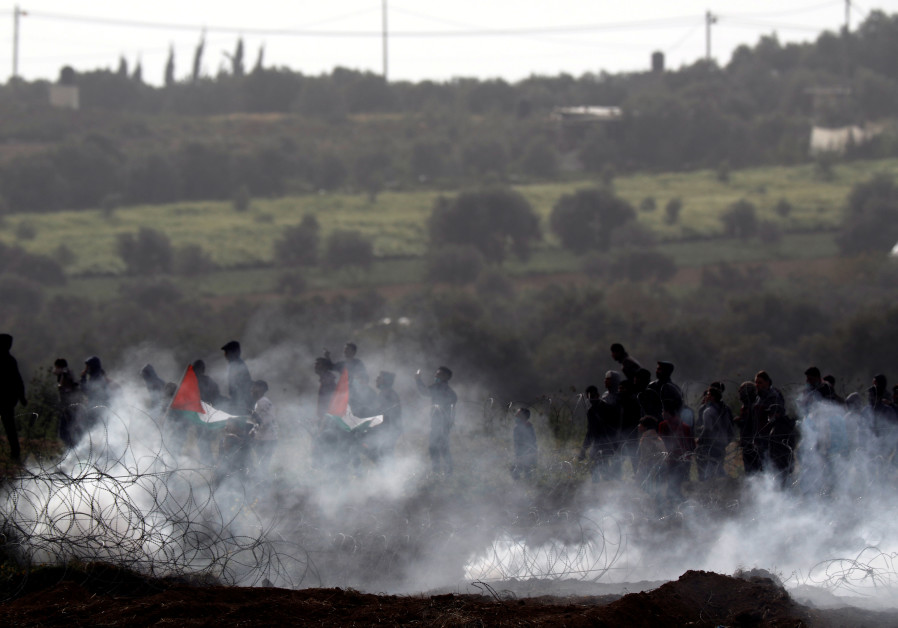Israel’s strategy of management and conflict avoidance threatens to lead to its encirclement.

Palestinians protest next to the border fence between Israel and the Gaza Strip, as it is seen from its Israeli side March 30, 2019. (photo credit: AMIR COHEN/REUTERS)
In March 25, following a rocket launch from Gaza that injured a family near Kfar Saba in Israel’s rarely attacked central region, families and citizens throughout the country felt the now very familiar prelude to war.
Like in December 2008, November 2012, July 2014, and numerous times since then when an Israeli invasion of Gaza seemed all but assured but did not materialize, another operation in Gaza appeared imminent.
During this most recent standoff, someone close to me, a university student and recent father, was called up for reserves to equip, train and be on standby for a potential incursion into Gaza. Nearly all Israelis have been here before; they, a family member or a close friend being called up from their daily lives to prepare to fight in Gaza.
While Israelis acutely understand the necessity to defend the nation, no one is tremendously pleased to be called from university, parenthood, work, or everyday life to go into a violent conflict zone where they might be injured or killed. Those with family and friends preparing to go into harm’s way breathe a sigh of relief when tensions deescalate, and the immediate threat of war recedes.
It has been nearly 14 years since Israel withdrew from Gaza, nearly 12 years since Hamas took full control over Gaza, and over a decade since Israel’s first major ground operation in Gaza, Operation Cast Lead (in which I took part). Although far from peaceful, the past five years have been the quietest yet since Israel’s withdrawal from Gaza in terms of casualties and violence, as well as the longest period without a major Israeli operation in Gaza since the Disengagement.
As Seth Frantzman explained in his analysis titled “The ‘Existing is Resisting’ Gaza Protest is Working” (The Jerusalem Post, March 31, 2019), Israel’s strategic management of the Gaza conflict without large-scale ground invasions since 2014 has worked well for Israel in the short-term. Frantzman is completely right in his conclusion that this dynamic is most likely to persist in the near term, although if Prime Minister Benjamin Netanyahu manages to put together a stable coalition, which appears likely, Israel may be more at risk regarding military action in Gaza.
Frantzman is also correct in pointing out that Israel leads in the learning curve in its conflict with the Gazan factions, with Israel’s technological capability to manage the Gazan militants outpacing the growth their capability to harm Israel. However, the long-term trend might not be as much in Israel’s favor.
Can technology beat well-entrenched, massed firepower indefinitely? Perhaps.











